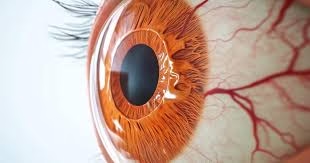A groundbreaking study has found that the tiny blood vessels around the human eyes can provide critical insights into a person’s heart health and biological aging.
Published in Science Advances, the research by McMaster University and the Population Health Research Institute (PHRI) — a joint institute with Hamilton Health Sciences — suggests that the vasculature of the retina could serve as a key predictor of cardiac disease risk and the pace of aging.
“By connecting retinal scans, genetics, and blood biomarkers, we have uncovered molecular pathways that help explain how aging affects the vascular system,” said Marie Pigeyre, senior author of the study and associate professor in the Department of Medicine at McMaster University.
The large-scale study analyzed data from 74,000 participants across four major research projects. It found that individuals with less branched retinal blood vessels faced a higher risk of heart disease, greater systemic inflammation, and shorter lifespans.
Researchers identified two proteins — MMP12 and IgG–Fc receptor IIb — that are closely linked to inflammation and vascular aging. These discoveries could pave the way for new treatments targeting cardiac arrest, vascular deterioration, and age-related diseases.
Pigeyre noted that in the future, retinal scans could become a routine part of medical checkups, enabling doctors to detect early signs of vascular aging before symptoms arise.
“Our findings highlight potential drug targets for slowing vascular aging, reducing cardiovascular disease, and ultimately extending lifespan,” Pigeyre added.



